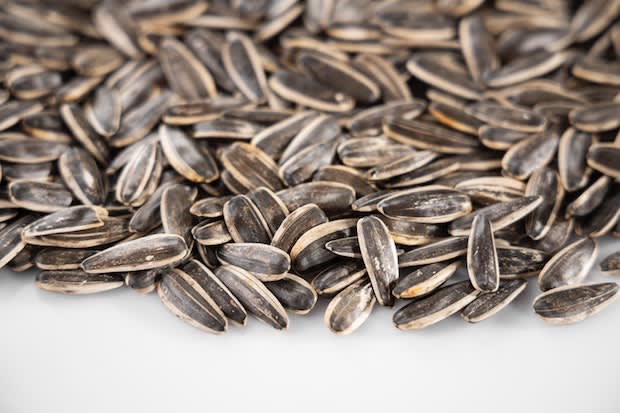Table of Contents
I. Signs & Symptoms of Dementia
Signs & Symptoms of Dementia
When you have dementia, you can experience problems with language, problem-solving, and memory. There are several different types of dementia, and some people may have more than one form at a time. The majority of dementia cases (60 to 80 percent) involve Alzheimer's, a more severe form of the disease. [1]
Typically, signs of dementia start slow and get worse over time. Everyone experiences dementia differently; Some people may decline rapidly while others can experience mild symptoms for a long period. If you notice that you're forgetting more things than normal, you may want to see your doctor. Symptoms vary significantly, but you may begin to notice challenges with:
- Paying bills
- Traveling out of the neighborhood
- Following conversations
- Short-term memory
- Remembering appointments
If your doctor decides that you are experiencing dementia, they will recommend medications like Namenda (memantine) (and Namenda solution) and Aricept (donepezil), which is also available in orally disintegrating tablets. These drugs help improve the brain's neural connections, which can lessen symptoms and slow the progression of the disease. The exact cause of dementia or Alzheimer’s is unknown, but it is thought to be a combination of genetic and environmental factors. If a close relative also has dementia, you are more likely to have it. If you know you are at risk for dementia, there are several ways you can tailor your diet to reduce your risk. Read on to learn more about foods that may boost memory. [1] Incorporating leafy greens into your diet is a good idea for everyone, especially those at risk for dementia. Leafy greens contain many essential B vitamins, including folate and folic acid. Research suggests that folate deficiency contributes to cognitive impairment, so boosting your folic acid levels can reduce your risk of dementia. Boosting folic acid can also reduce the risk of depression, which is a common complication of dementia. You can incorporate the following vegetables into your diet: Some people do not like the texture and taste of these vegetables, but you can incorporate them into your diet in several ways. You can puree them to make pesto and hummus or add leafy greens to soups, stews, and chilis. [2] Berries are not only delicious but full of beneficial vitamins. Berries contain a flavonoid called anthocyanin that may prevent the progression of brain damage. Raspberries, blackberries, and blueberries can give you a delicious dose of antioxidants and reduce brain inflammation. Blueberries can keep blood vessels clear of plaque and reduce the risk of vascular dementia and Alzheimer's. [2] Blueberries have been studied for their brain-boosting capabilities for over 20 years. The polyphenol phytonutrients in blueberries have been found to slow the progression of dementia and the rate of mental decline. Some studies have shown that older rats who were given blueberries were able to navigate mazes more successfully. Scientists also believe that foods the same color as blueberries can have similar effects on the brain. These foods include red cabbage, pomegranates, and grape juice. [3] Nuts and seeds contain healthy fatty acids that may benefit brain health. Nuts contain vitamin E, magnesium, and B vitamins, which promote cognition and improve the symptoms of dementia. One study has found that five servings of nuts per week can significantly improve brain health in women over 70 years old. Beneficial nuts include: There are anti-inflammatory phytochemicals in walnuts, which can reduce brain inflammation and slow the progression of brain damage. [2] You can make an even better trail mix by incorporating brain-healthy seeds as well. Sunflower seeds, flax seeds, and pumpkin seeds contain vitamin E, omega-3s, and choline. Choline is a nutrient that helps the nervous system and brain regulate mood, memory, and muscle control. Boosting your choline levels can potentially ward off dementia symptoms. If you are caring for Alzheimer's patients, please ensure that these foods are chewed and swallowed properly to prevent the chance of aspiration. [4] Legumes are another healthy source of choline. Legumes, or beans, are high in folate as well as choline. They are also a great source of protein and can help you feel fuller longer. On top of all these benefits, legumes are packed full of iron, potassium, and magnesium. All of these nutrients are essential to the body's functioning as well as the brain. You may want to add the following legumes to your diet: The choline in these foods can support the production of neurotransmitters in the brain, which increases the communication between the central nervous system and the brain. Before beginning a new diet routine, consult your doctor to make sure this decision is healthy for you and your dementia treatment. [6] The content in this article is intended for informational purposes only. This website does not provide medical advice. In all circumstances, you should always seek the advice of your physician and/or other qualified health professionals(s) for drug, medical condition, or treatment advice. The content provided on this website is not a substitute for professional medical advice, diagnosis, or treatment.
Leafy Greens
Berries

Nuts & Seeds

Legumes
